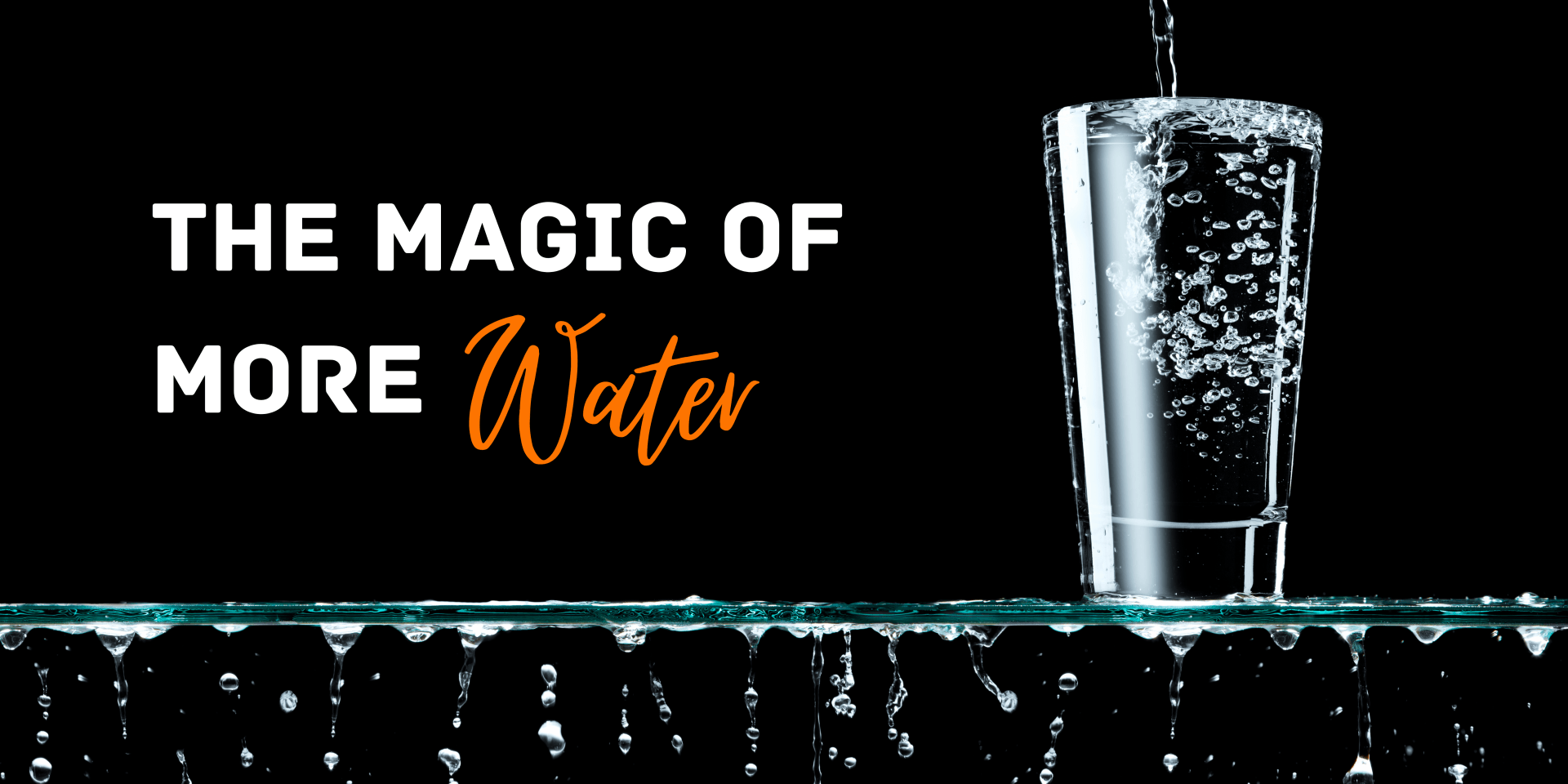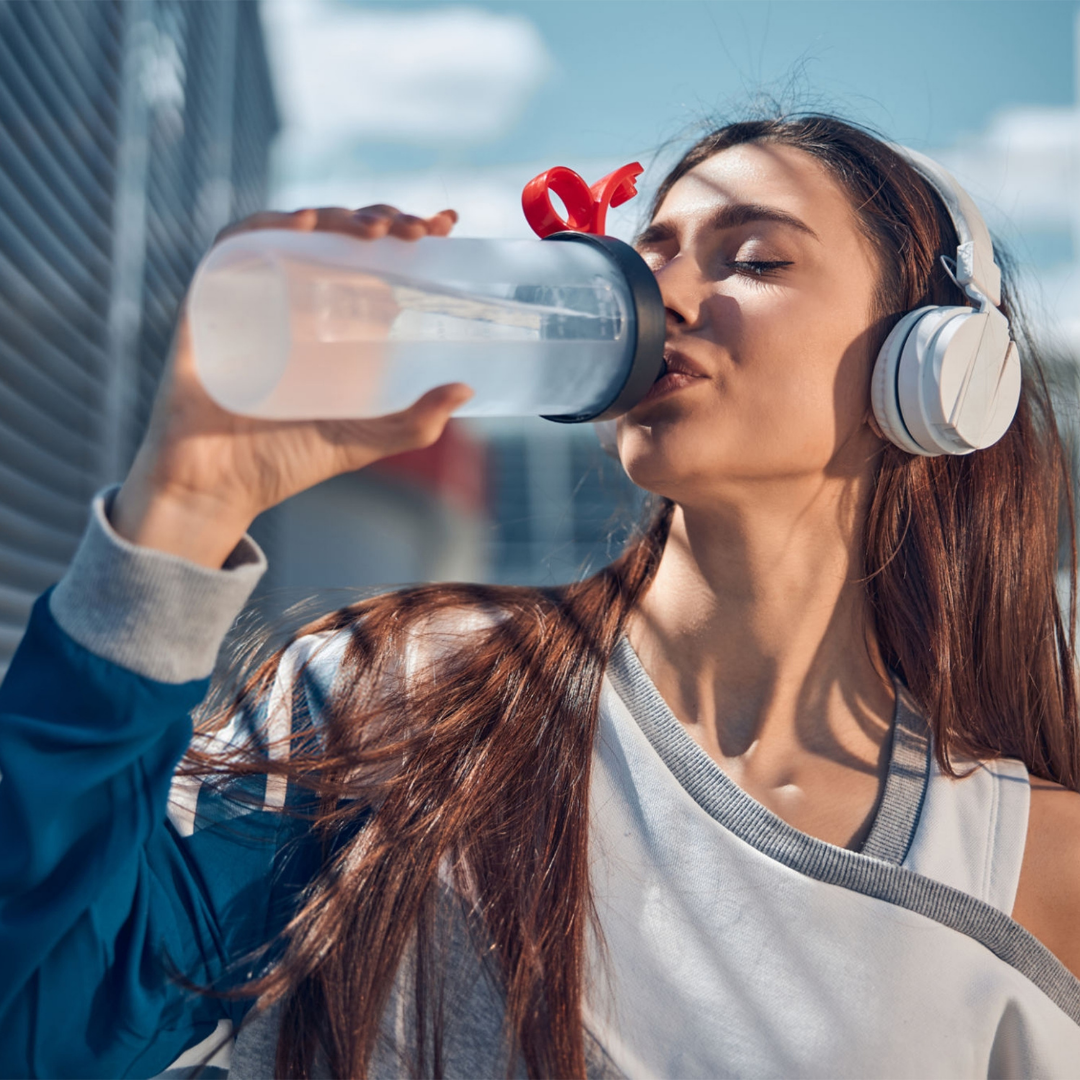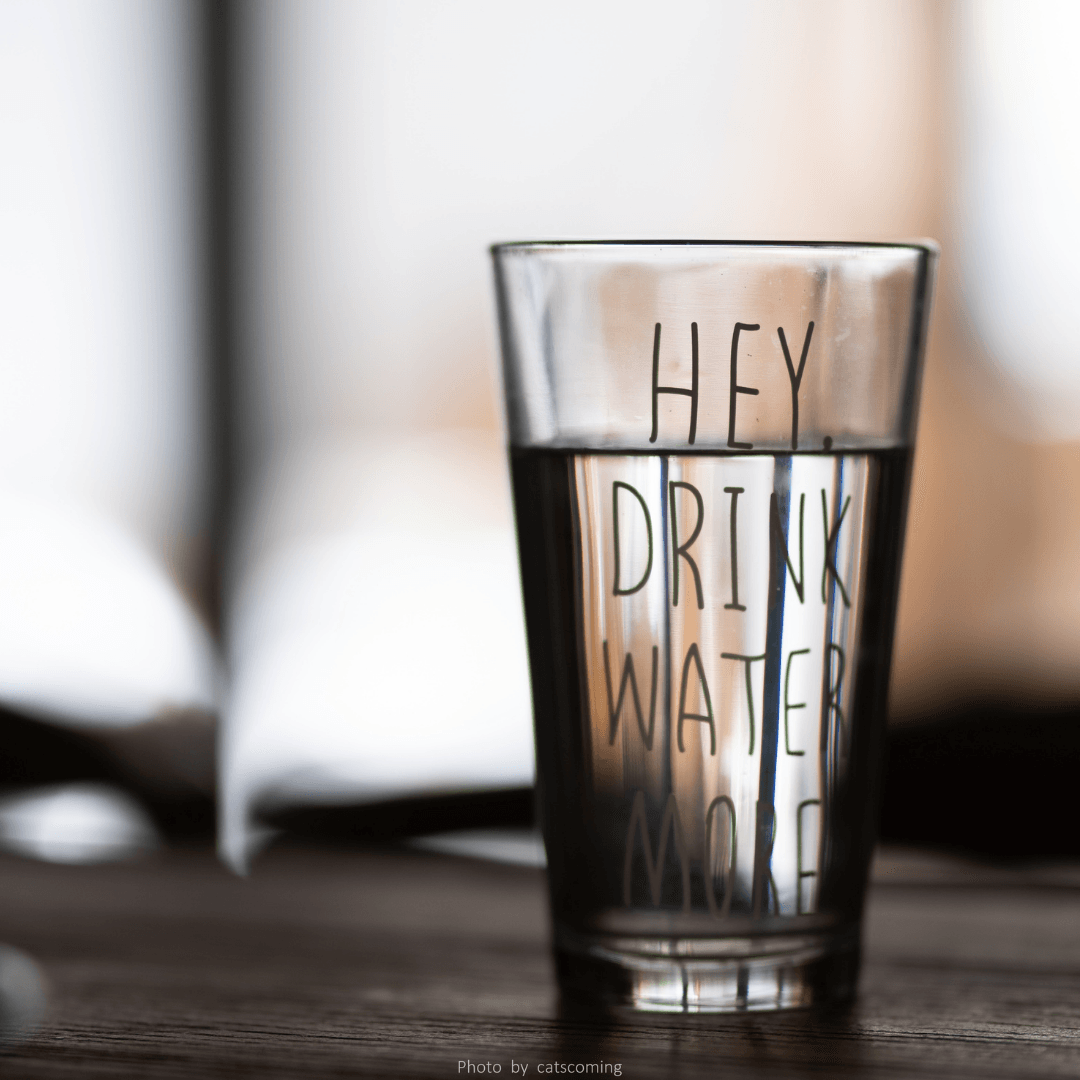
The Magic Of More Water
If there is any guarantee in the world of health and fitness, it’s that we all need to be drinking more water.
One of the first questions we ask new clients is, “How much water are you drinking?”
We get that this seems like a subject that’s been talked about again, and again, and again. But we will continue to talk about until —when? —people start drinking enough water.
Let’s dig into the benefits of water consumption, because it’s more important than you might think.
The Basic Benefits of Drinking Water
- Carries nutrients and oxygen to your cells
- Regulates body temperature
- Flushes bacteria from your bladder
- Aids in digestion and preventing constipation
- Regulates blood pressure and the heartbeat
- Cushions joints
- Protects vital organs and tissues
- Maintains electrolyte balance
How Much Water Should You Drink Each Day?
You have probably heard the guidelines of 8 glasses of water a day. But, is that really how much water you should drink?
The truth is it’s hard to make broad recommendations about water requirements. The amount required depends on the individual with determining factors that include: activity level, weight, geographic location, health status, and others.
You may need more fluid if you exercise regularly, work outside, or live in a hot climate.

Checking in with your thirst cues is the best place to start. Pay attention to how you feel and perform in exercise as well as in day-to-day activities. Then, you can incrementally increase the amount of water you drink.
Once you have tapped into your thirst cues and your individual needs, you may want to consider upping your water intake even more if your goal is to lose weight.
Here’s how it can benefit weight loss efforts:
- Water helps you feel full and satisfied, which may reduce overall caloric intake.
- You may be more thirsty than hungry. So having a glass of water before eating may help decrease your appetite.
- Staying hydrated helps with gut motility, so you are not holding waste and have regular bowel movements. That’s not only healthy, but it means you’re not holding on to extra weight.
- Switching from calorie-laden beverages – soda, juice, etc – to water will reduce your calorie intake throughout the day.
- Water may also help reduce stress. Being stressed can contribute to making weight loss harder. In this study published in the International Journal of Sports Medicine, they found that dehydration also increases your body’s production of cortisol, the stress hormone.

Can You Drink Too Much Water?
Yes, we do get this question. Rest assured, drinking too much water is extremely uncommon.
It is only possible to become over-hydrated under specific circumstances.
The technical term for being over-hydrated is hyponatremia. It is caused by having a concentration of sodium in your blood that is abnormally low.
Fun fact: Sodium is an electrolyte that helps regulate the amount of water in and around your cells.
But again, it’s challenging to drink too much water. If you have built a water consumption habit with awareness, it is improbable you will overdo your water intake.
This is especially true if you are someone who drinks coffee or caffeinated tea regularly because caffeine dehydrates us.
With that said, it is important to note that if you have underlying health conditions or are exercising in extreme conditions, such as endurance and ultra-endurance events, consult a health professional about your water intake.
If you’re concerned you’re at risk for hyponatremia, consult your doctor before upping your daily water consumption.
Can You Drink Too Much Water?
Water is calorie-free, helps your body run efficiently, promotes better exercise performance, and supports healthy weight.
The benefits of drinking water are even more significant when you replace sugary, artificially-sweetened, and caffeinated beverages with water.
The bottom line is: water is magic. So let drinking more water be one of the building blocks of the foundation for your healthier lifestyle.
It’s a win-win no matter what.
